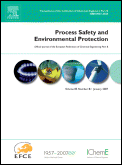
PROCESS SAFETY AND ENVIRONMENTAL PROTECTION
Scope & Guideline
Innovating practices for a safer, cleaner environment.
Introduction
Aims and Scopes
- Process Safety Management:
The journal emphasizes the importance of process safety management systems to prevent accidents in industrial settings, including the development of safety protocols and risk assessment methodologies. - Environmental Protection Technologies:
Research in this area focuses on technologies and processes aimed at reducing environmental impact, such as waste treatment, pollution control, and resource recovery. - Chemical and Biological Processes:
The journal explores chemical and biological processes for environmental remediation, including advanced oxidation processes, bioremediation, and the use of microbial fuel cells. - Energy Efficiency and Sustainability:
Studies on improving energy efficiency in industrial processes, including renewable energy integration, energy recovery systems, and the development of sustainable fuels. - Innovative Materials and Catalysts:
Research on new materials and catalysts that enhance process efficiency and safety, including nanomaterials for pollution control and advanced catalytic systems. - Risk Analysis and Management:
This includes methodologies for hazard identification, risk assessment, and the implementation of safer design practices in chemical processes.
Trending and Emerging
- Advanced Oxidation Processes (AOPs):
There is a growing emphasis on AOPs for wastewater treatment, highlighting their effectiveness in degrading persistent pollutants and the development of new catalysts. - Circular Economy Practices:
Research is increasingly focused on integrating circular economy principles into industrial processes, emphasizing waste valorization and resource recovery. - Machine Learning and AI Applications:
The application of machine learning and AI in process monitoring, risk assessment, and optimization is trending, with studies exploring their effectiveness in enhancing operational safety. - Sustainable Biofuel Production:
Research on biofuels derived from waste materials and biomass is gaining traction, reflecting a shift towards sustainable energy solutions. - Hybrid Energy Systems:
Innovative hybrid systems that combine different energy sources for improved efficiency and reduced environmental impact are increasingly featured in recent publications. - Nanotechnology in Environmental Protection:
There is a growing interest in the use of nanomaterials for environmental remediation and pollution control, indicating an emerging trend towards advanced materials science.
Declining or Waning
- Conventional Waste Treatment Methods:
There is a noticeable shift away from conventional waste treatment methods towards more innovative, sustainable technologies such as bioremediation and advanced oxidation processes. - Traditional Energy Sources:
Research related to traditional fossil fuel energy sources is declining as the focus shifts towards renewable energy solutions and sustainable energy systems. - Basic Process Safety Protocols:
The journal is increasingly prioritizing advanced safety protocols that integrate new technologies and methodologies, leading to a waning interest in basic, conventional safety practices. - Single-Factor Environmental Impact Studies:
Research that focuses solely on single-factor environmental impacts is being replaced by more comprehensive studies that consider multi-faceted interactions and sustainability assessments.
Similar Journals

ENVIRONMENTAL ENGINEERING SCIENCE
Pioneering research for a sustainable future.ENVIRONMENTAL ENGINEERING SCIENCE is a leading journal published by MARY ANN LIEBERT, INC that provides a platform for pioneering research in the fields of environmental chemistry, pollution control, and waste management. With an ISSN of 1092-8758 and an E-ISSN of 1557-9018, this peer-reviewed journal aims to disseminate high-quality scientific studies that address critical environmental challenges. As evidenced by its 2023 category quartile rankings, it holds a notable position at Q3 in Environmental Chemistry and Pollution and Q2 in Waste Management and Disposal, highlighting its relevance and impact in these domains. Spanning over two decades from 1997 to 2024, the journal is dedicated to fostering innovations and promoting rigorous scholarship that can contribute significantly to sustainable environmental practices globally. Authors and researchers are encouraged to engage with this essential resource, which offers Open Access options to enhance the visibility and reach of their work. For those interested in advancing their understanding and practice within the environmental sciences, ENVIRONMENTAL ENGINEERING SCIENCE is an indispensable journal to consider.
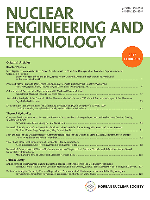
Nuclear Engineering and Technology
Leading the Charge in Nuclear Engineering ExcellenceNuclear Engineering and Technology, published by the Korean Nuclear Society, is a premier Open Access journal dedicated to the rapidly evolving fields of nuclear energy and engineering. Established as a significant platform for scholarly communication since 2008, this journal has consistently anchored itself in the academic community, achieving a Q2 ranking in its category as of 2023, reflecting its influence and quality within the domain of Nuclear Energy and Engineering. With an impressive Scopus ranking of #15 out of 77, positioning it in the 81st percentile, the journal publishes cutting-edge research that addresses both fundamental and applied aspects of nuclear technology. Nuclear Engineering and Technology embraces an open access model since 2013, ensuring that valuable research is accessible to a global audience, thereby enhancing collaboration among researchers, professionals, and students passionate about advancing nuclear technology. The journal serves as an essential resource for those aiming to innovate and push the boundaries of knowledge in nuclear sciences.
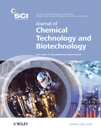
JOURNAL OF CHEMICAL TECHNOLOGY AND BIOTECHNOLOGY
Transforming Ideas into Impactful Solutions in Chemical TechnologyJOURNAL OF CHEMICAL TECHNOLOGY AND BIOTECHNOLOGY, published by WILEY in the United Kingdom, serves as a premier platform for research at the interface of chemical engineering and biotechnology. With an ISSN of 0268-2575 and E-ISSN 1097-4660, this journal has established itself as a crucial resource for scholars and professionals, evidenced by its impactful categorization in the Q1 and Q2 quartiles across multiple domains such as Inorganic Chemistry, Biotechnology, and Renewable Energy. The journal encompasses a broad scope that includes innovative research on sustainable technologies, pollution management, and advances in chemical syntheses, making it essential for those pursuing cutting-edge developments in these disciplines. Researchers and practitioners benefit from its comprehensive coverage, as it includes insightful articles, reviews, and case studies that collectively push the boundaries of contemporary science and engineering. With a ranking of Q2 in its various categories and significant percentiles in key fields, the journal stands as a beacon for high-quality scholarship, eligible for impact in both academia and industry.
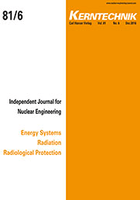
KERNTECHNIK
Pioneering insights in materials science and high-energy physics.KERNTECHNIK is a distinguished journal specializing in the fields of Materials Science, Nuclear and High Energy Physics, and Nuclear Energy and Engineering. Published by WALTER DE GRUYTER GMBH, this journal has continuously contributed to advancing knowledge and research in nuclear technologies and related safety measures since its inception in 1969. With an ISSN of 0932-3902 and an E-ISSN of 2195-8580, KERNTECHNIK serves as a vital platform for academics and professionals seeking to delve into both theoretical and practical aspects of nuclear science and technology. Though listed in the Q4 quartile across multiple categories in 2023, the journal's commitment to publishing rigorously peer-reviewed articles ensures that it remains a respected resource, facilitating academic discourse and innovation. It is particularly aligned for those conducting research or working in safety, risk, reliability, and quality within the nuclear sector, and its extensive historical archive allows for in-depth exploration of evolving technologies. Aimed at foster cooperation between researchers, policymakers, and industry experts globally, KERNTECHNIK continues to play an important role in shaping the future of nuclear science.
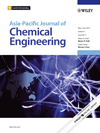
Asia-Pacific Journal of Chemical Engineering
Pioneering Sustainable Solutions for a Greener Tomorrow.The Asia-Pacific Journal of Chemical Engineering, published by WILEY, serves as a vital forum for the dissemination of innovative research in the interdisciplinary domains of chemical engineering, renewable energy, sustainability, and waste management. Established in 2006, this esteemed journal has achieved a notable impact factor that reflects its commitment to advancing knowledge and practices within the chemical engineering community. With its Q3 category rankings across various fields, including Chemical Engineering (Miscellaneous), Renewable Energy, Sustainability and the Environment, and Waste Management and Disposal, the journal holds a significant position among its peers, assuring readers of quality and relevance in published content. Although it does not offer Open Access options, the Asia-Pacific Journal of Chemical Engineering remains an essential resource for researchers, professionals, and students aiming to stay at the forefront of innovations affecting the Asia-Pacific region and beyond. The journal's broad scope covers diverse topics, making it an integral part of the academic landscape from 2006 to 2024.
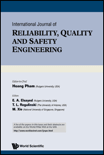
International Journal of Reliability Quality and Safety Engineering
Pioneering Research for Dependable Engineering SolutionsThe International Journal of Reliability Quality and Safety Engineering, published by World Scientific Publishing Co Pte Ltd, is a leading platform for disseminating cutting-edge research in the fields of reliability, quality, and safety engineering. With an impressive scope that spans across aerospace, electrical engineering, nuclear energy, and industrial manufacturing, this journal serves as a critical resource for researchers and professionals aiming to enhance system dependability and operational excellence. Indexed in Scopus, it holds a respectable Q3 ranking across various categories in 2023, reflecting its growing influence in the academic community. Although currently not open access, it provides ample opportunities for scholars to publish impactful studies from its extensive database, which has evolved since 1996. The journal's commitment to advancing knowledge in reliability and safety engineering makes it a pivotal resource for those dedicated to improving engineering practices and protocols worldwide.

Journal of Space Safety Engineering
Shaping the future of aerospace safety through rigorous research.The Journal of Space Safety Engineering, published by ELSEVIER, is a pioneering platform dedicated to advancing the field of aerospace safety and engineering. Since its inception in 2014, this journal has catered to researchers and professionals focusing on the crucial intersection of aerospace engineering and safety, risk, reliability, and quality management. With an ISSN of 2468-8975 and E-ISSN of 2468-8967, it has established itself within the academic community, currently holding a Q3 ranking in both Aerospace Engineering and Safety, Risk, Reliability, and Quality categories, according to the 2023 metrics. The journal, which covers converged years up to 2024, is instrumental for those seeking to explore innovative safety solutions in space missions and exploration, making it an essential resource for students, industry professionals, and researchers alike. Although it is not open access, it remains a credible source of impactful studies that contribute to enhancing safety protocols and engineering practices in aerospace endeavors. With a strong focus on rigorously vetted research, the Journal of Space Safety Engineering ensures that important advancements in this dynamic and vital field are shared widely among experts and stakeholders.
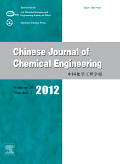
Chinese Journal of Chemical Engineering
Advancing Chemical Innovation for a Sustainable FutureChinese Journal of Chemical Engineering, published by CHEMICAL INDUSTRY PRESS CO LTD, is a premier academic journal dedicated to advancing the field of chemical engineering and related disciplines. With a strong emphasis on innovative research and practical applications, the journal spans a wide range of topics including biochemistry, environmental engineering, and general chemistry. Boasting a commendable impact factor and a consistent presence in Q2 quartiles across multiple categories, it ranks impressively in Scopus, notably positioned in the top percentile of its fields, enhancing its credibility and reach among the scientific community. Published continuously since 1993 and converging towards its 2024 goals, the journal remains committed to fostering sustainable and impactful research. Researchers, professionals, and students alike will find invaluable resources and cutting-edge insights, making the Chinese Journal of Chemical Engineering an essential platform for disseminating pivotal work in the realms of chemical and environmental sciences.
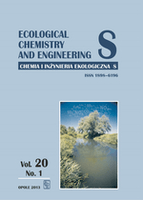
Ecological Chemistry and Engineering S-Chemia I Inzynieria Ekologiczna S
Innovative Research at the Intersection of Chemistry and EcologyEcological Chemistry and Engineering S, a prominent journal in the field of Environmental Chemistry and Engineering, provides a platform for innovative research and critical discussions surrounding ecological solutions and sustainable practices. Published by SCIENDO, this peer-reviewed journal is accessible to researchers and professionals dedicated to advancing our understanding of ecological systems and sustainable engineering practices. With an ISSN of 1898-6196 and an E-ISSN of 2084-4549, the journal has established itself in the academic community, reflected by its Q3 ranking in both Environmental Chemistry and Environmental Engineering categories as of 2023. Covering significant advancements from 2008 to 2024, it serves as an essential resource in advancing knowledge and fostering collaborations within interdisciplinary fields. Despite not offering open access, the journal remains an invaluable resource for researchers and students aiming to contribute to ecological sustainability strategies worldwide.

Journal of Hazardous Materials Letters
Connecting science and practice to combat pollution challenges.Journal of Hazardous Materials Letters, published by ELSEVIER, is a premier open access journal that has rapidly gained prominence in the fields of Environmental Chemistry, Environmental Engineering, Health, Toxicology and Mutagenesis, Pollution, and Waste Management and Disposal since its inception in 2020. With an impressive categorization in the top quartile (Q1) across all its relevant disciplines in 2023, this journal ranks favorably within the Scopus database, positioning itself in the upper echelons of Environmental Science—ranked 23rd in Environmental Engineering and 19th in Health, Toxicology and Mutagenesis among its peers. It serves as a vital platform for the dissemination of high-quality research focused on addressing hazardous materials and their impacts on health and the environment. The journal's commitment to open access facilitates immediate and broad dissemination of research findings, ensuring that essential knowledge reaches a global audience of researchers, professionals, and students eager to advance the field. With its ongoing convergence into 2024, the Journal of Hazardous Materials Letters continues to drive innovation and influence practice in managing hazardous materials for a sustainable future.